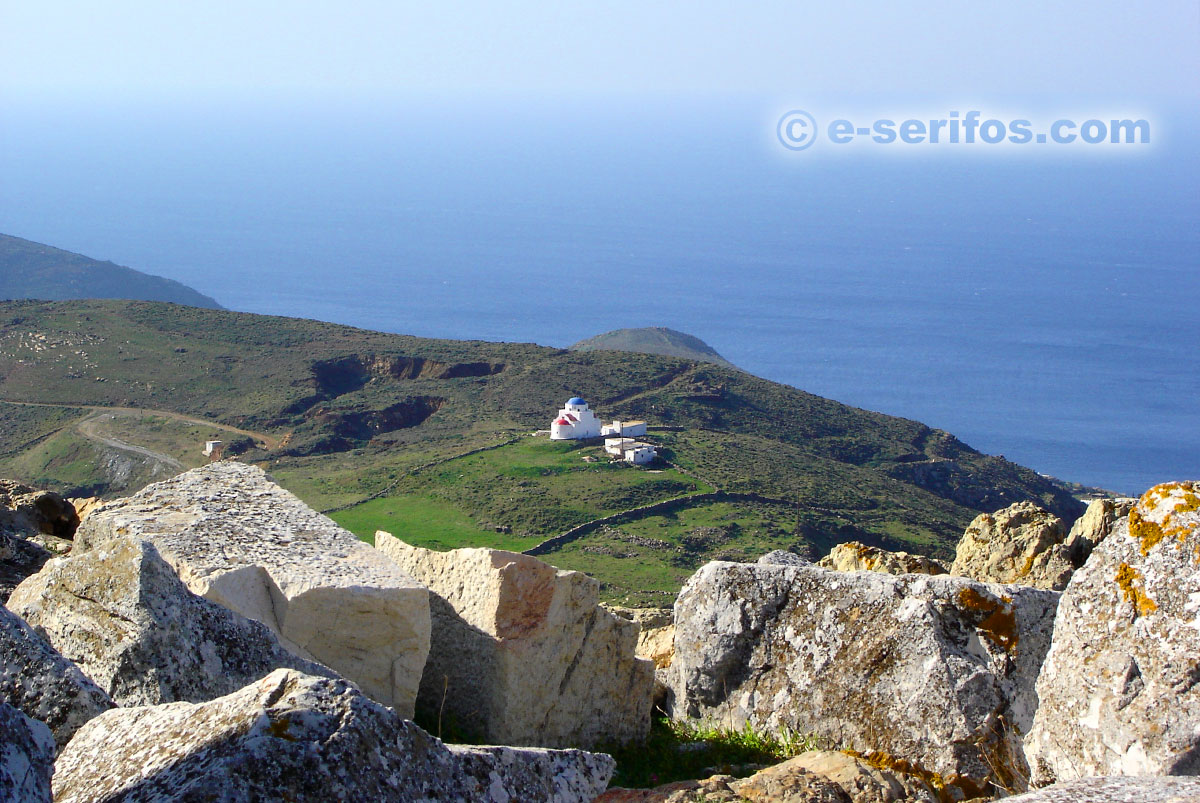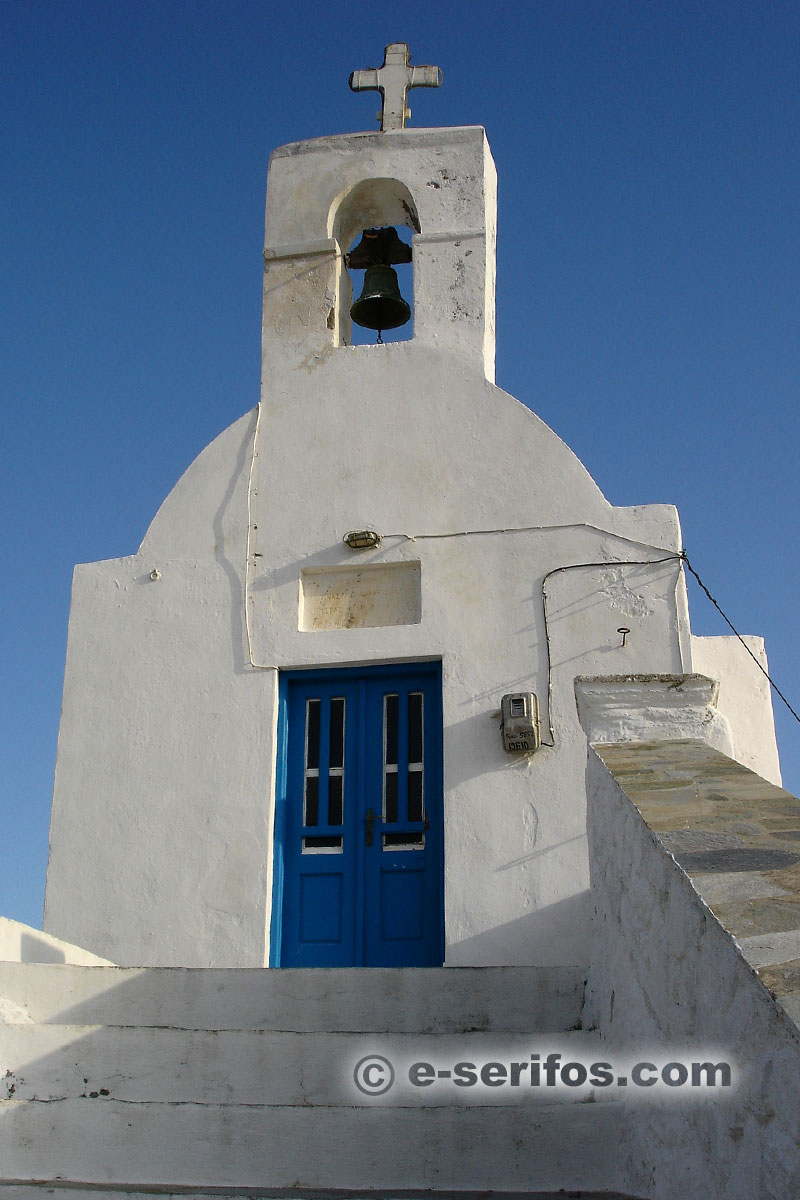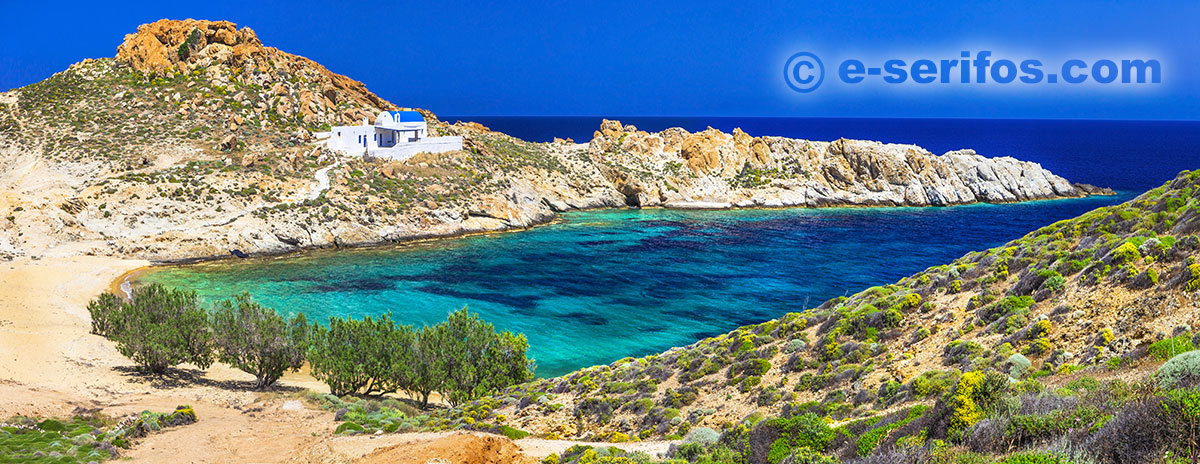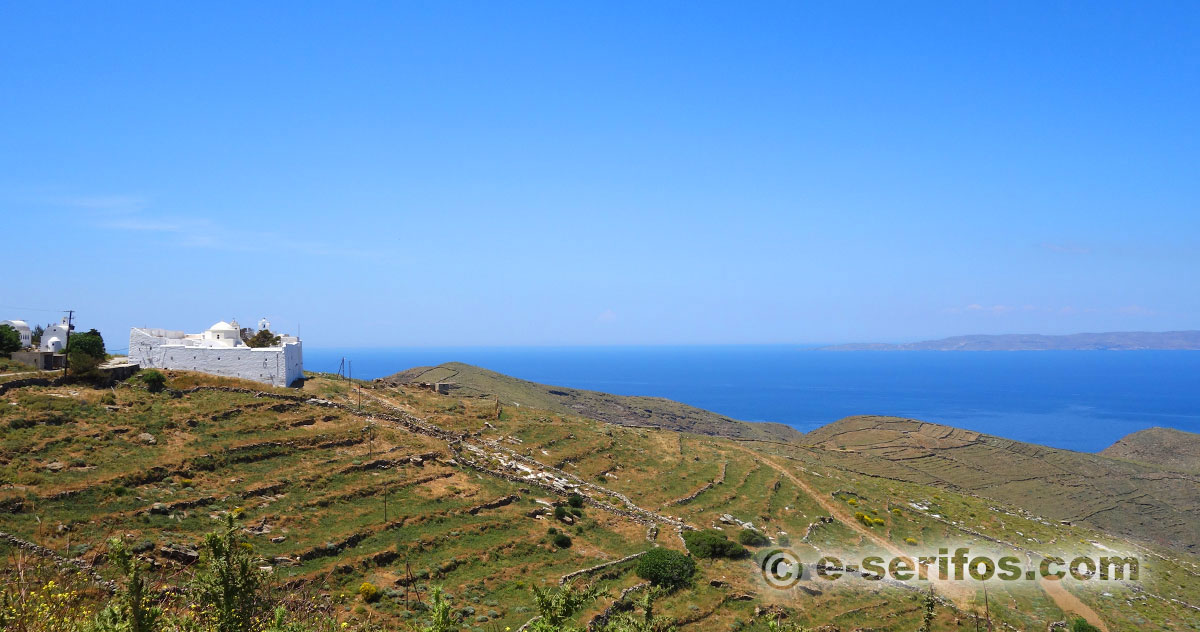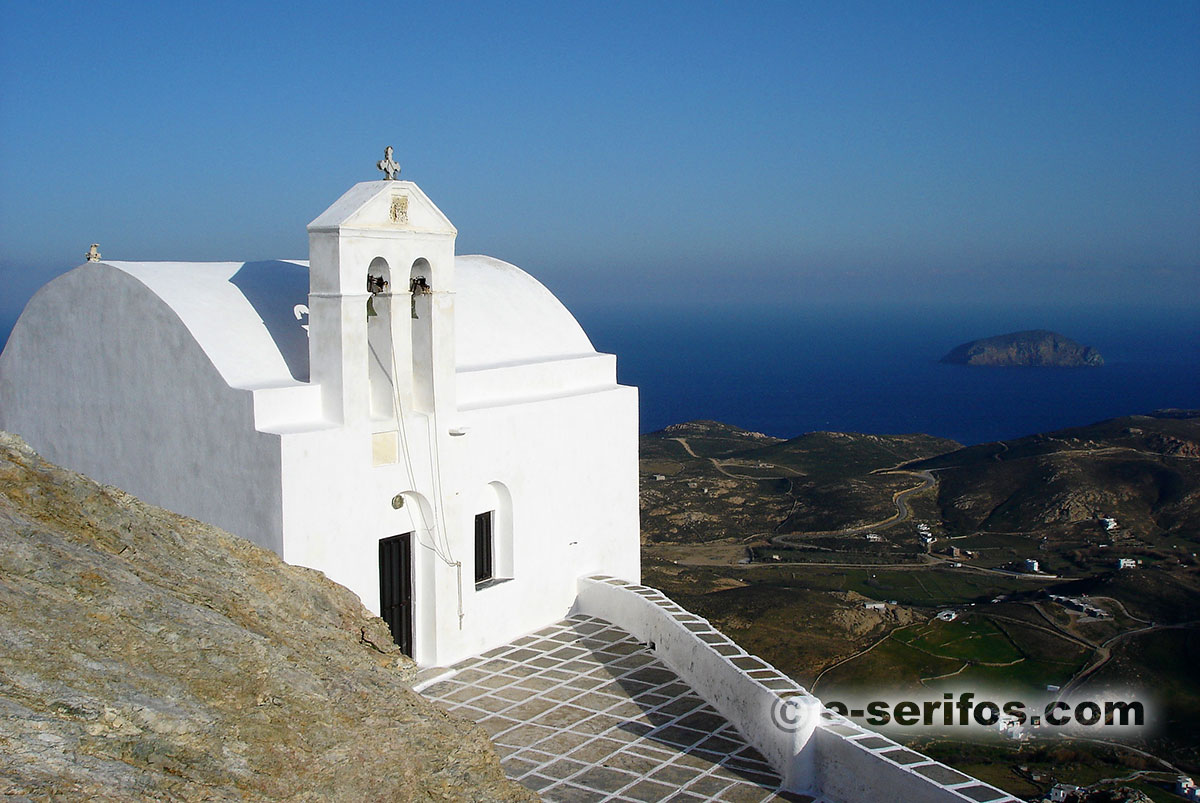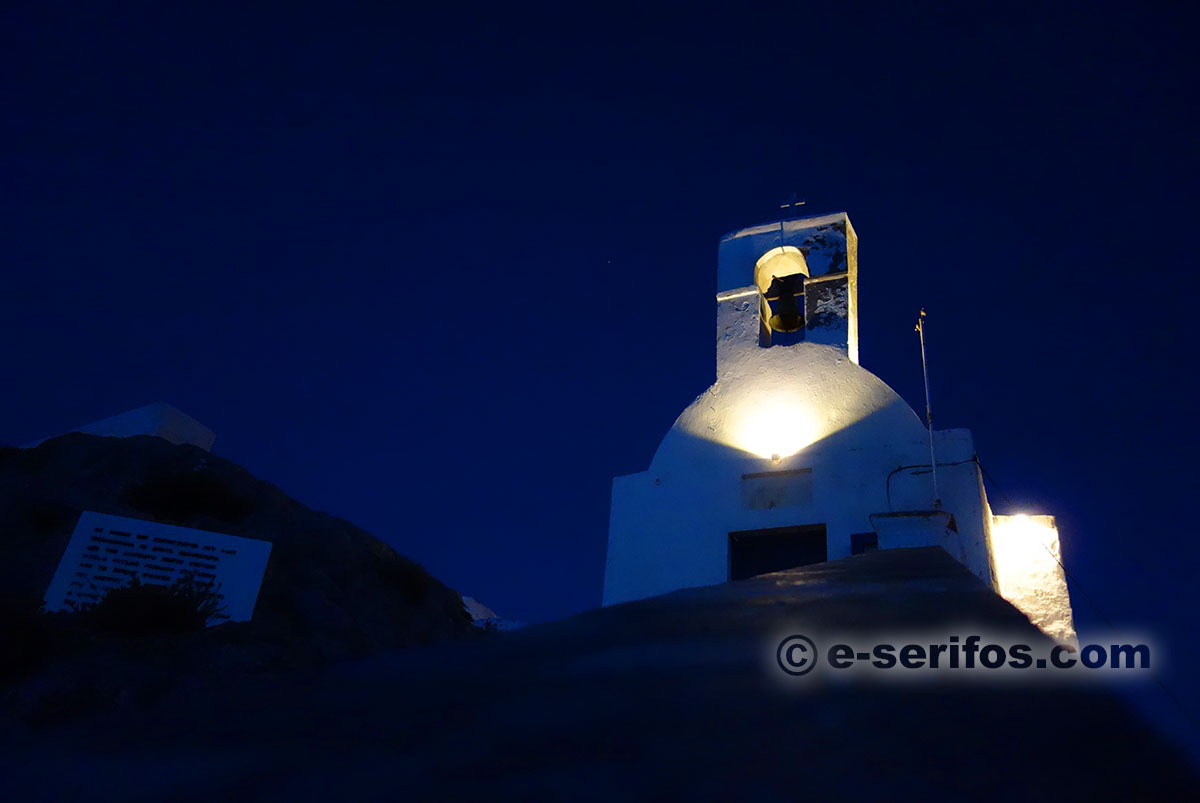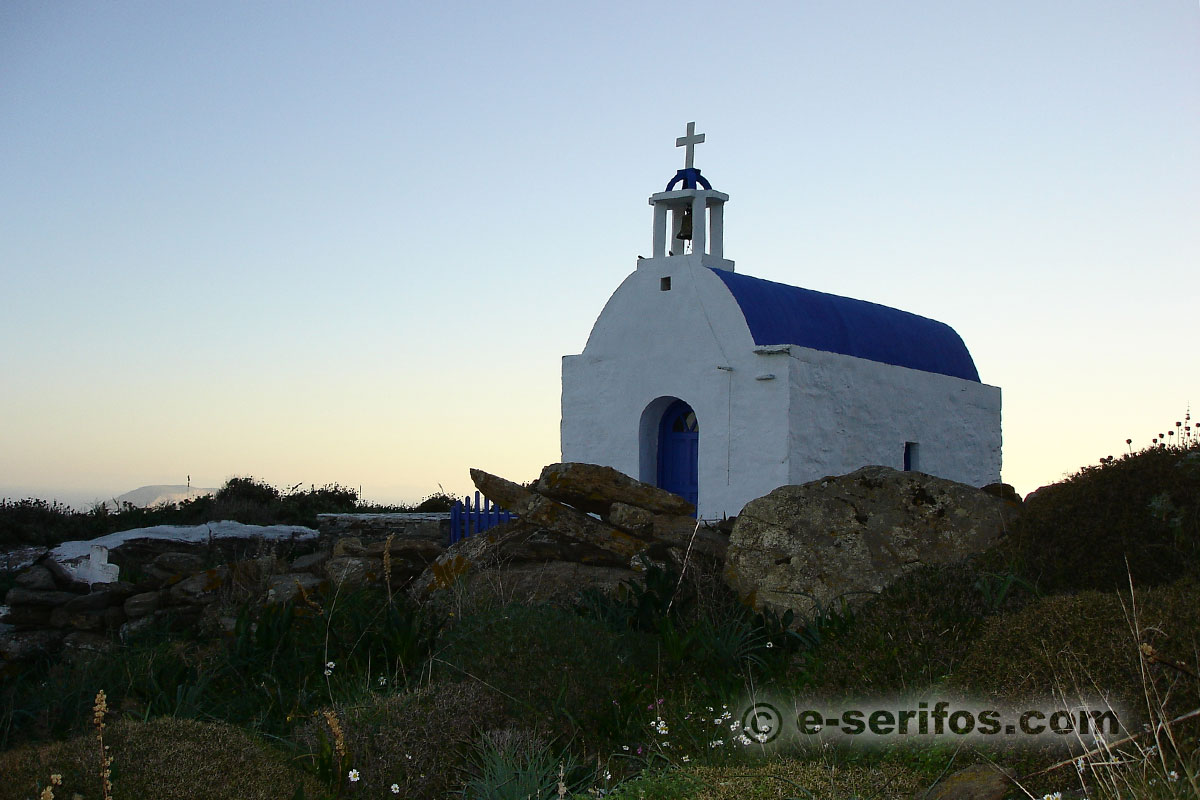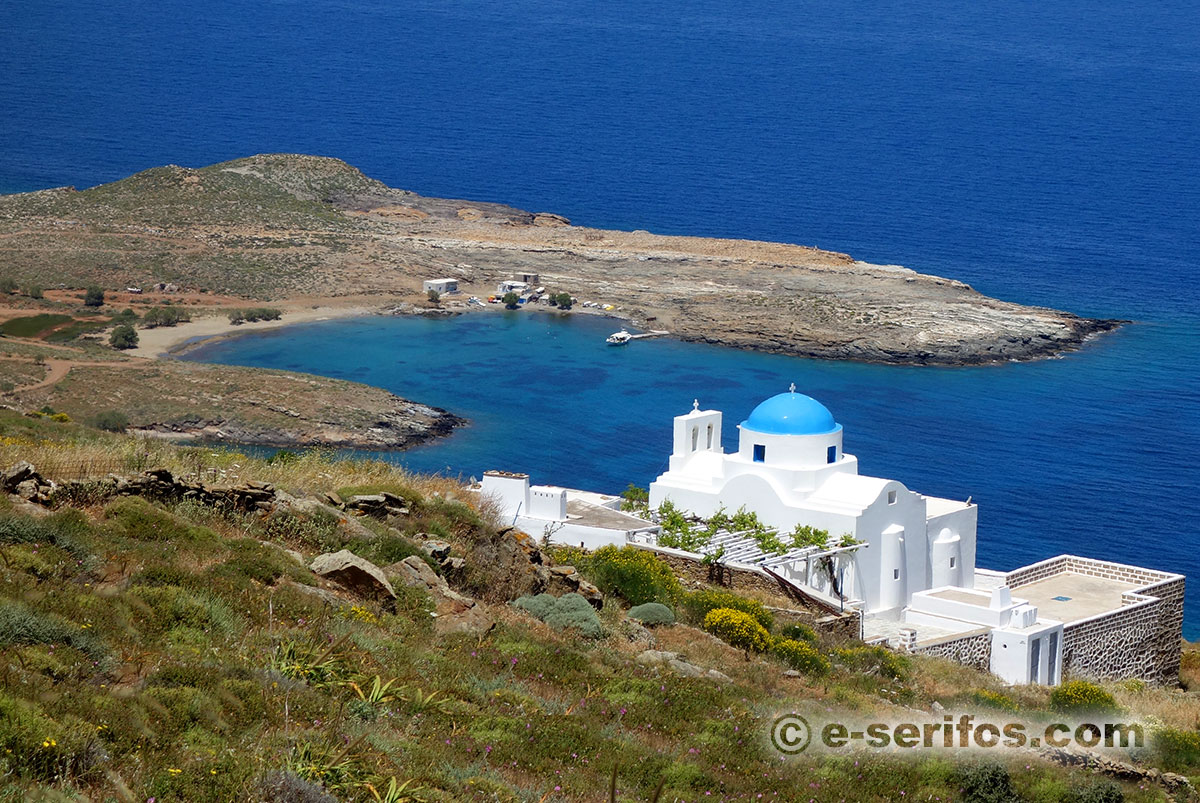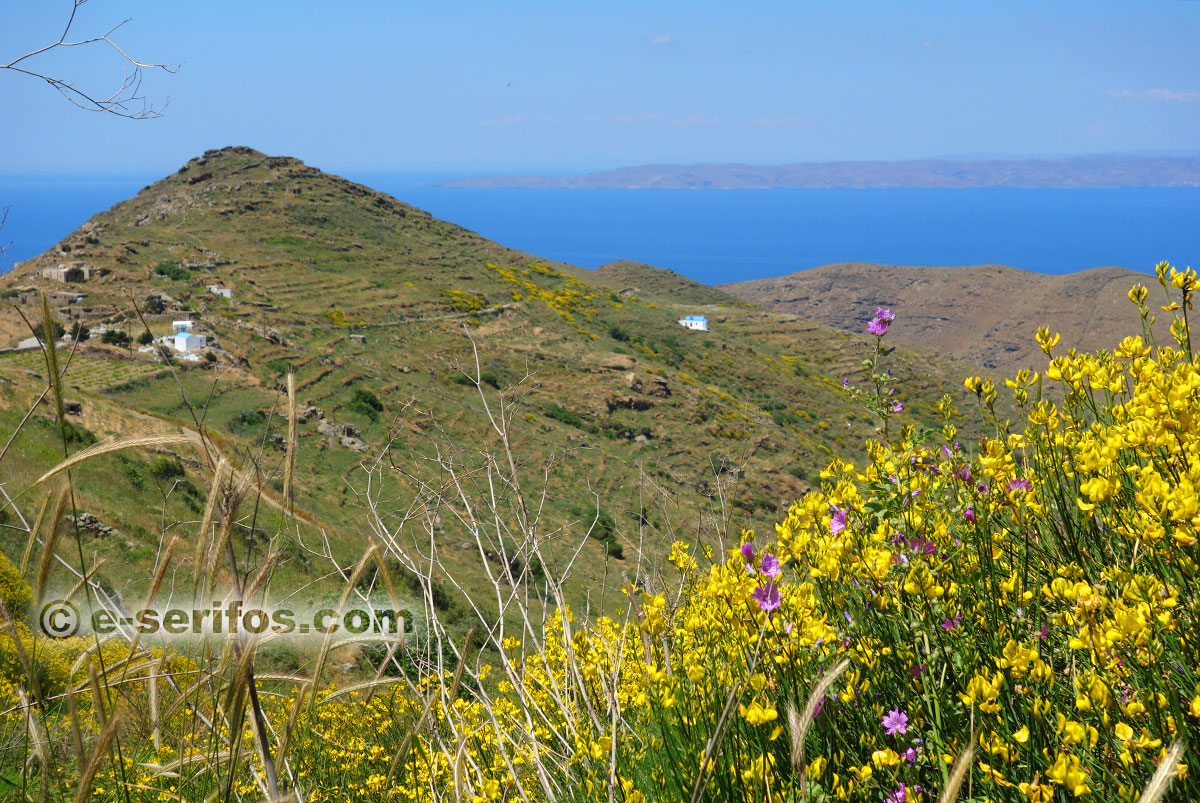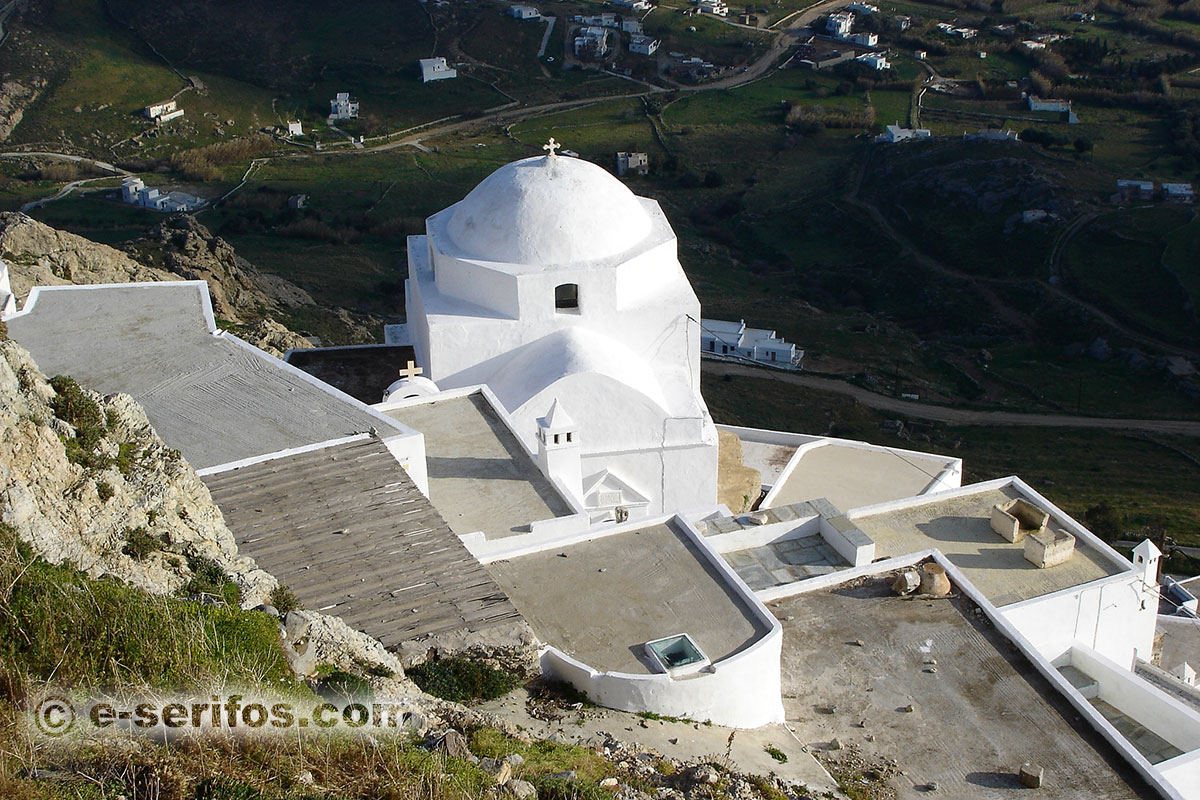Churches and monasteries in Serifos
Some of the churches in Serifos
Religious tourism in Serifos
Christian tradition of Greece
The churches, places intended to meet the needs of Christian worship, are a characteristic and inextricable element of the Greek landscape. Their decoration – whether painting, mosaic or other - always reflects the Orthodox doctrine, following specific style trends and established iconographic programmes. Over the centuries, important architects, builders or painters have contributed to the construction and decoration of the Greek churches, many of which now are scheduled monuments.
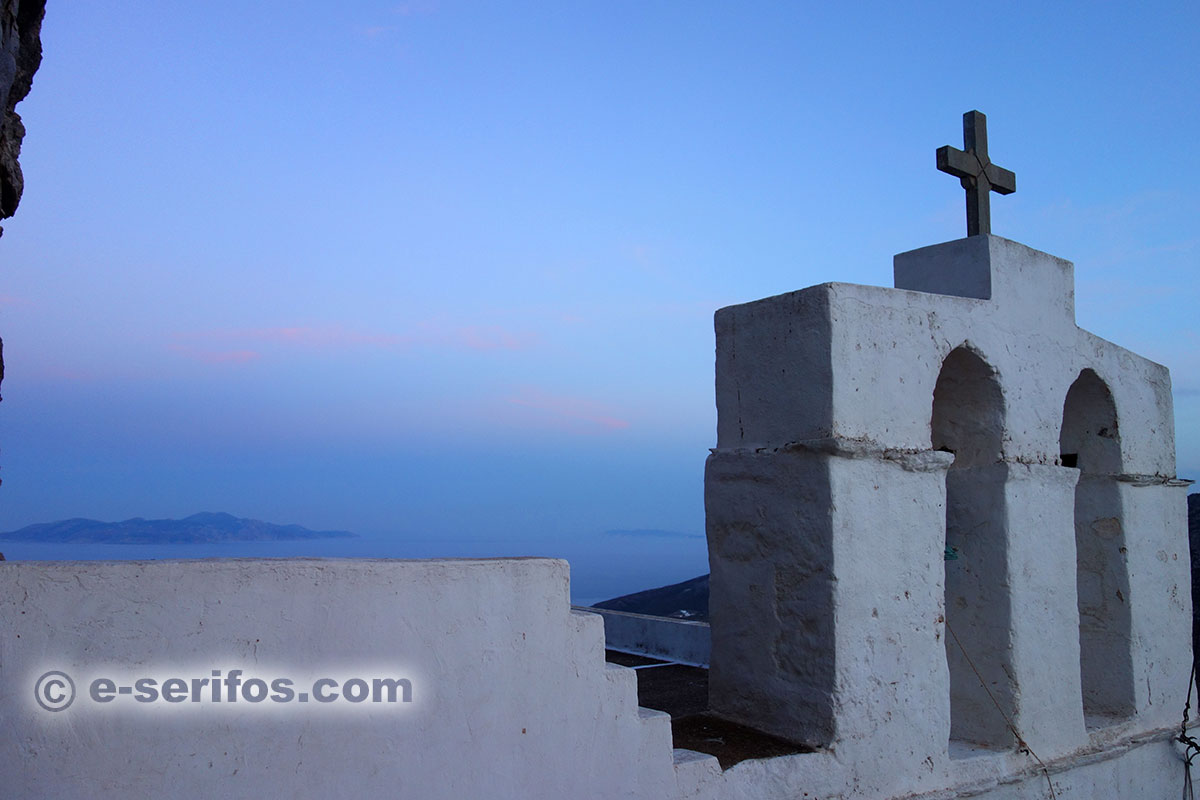
Like the churches, monasteries are closely connected with the history and tradition of Greece. By "monastery" we mean the total number of buildings in which monks or, more generally, the members of a religious community live. Monasteries comprise a central church (called the Catholicon), chapels, the monks’ cells, guest houses, the dining room (the refectory), the kitchen, the library, etc.
The institution of monasticism first made its appearance in the 4th century A.D. with the anchorites (or hermits) and spread very quickly to other areas of the then Byzantine empire. It reached a peak around the 10th century A.D. and this led to the establishment of many monasteries.
The churches of Serifos
In Serifos there are more than 116 churches, many of which are restored Byzantine churches, while others are built in remote places and their access is possible only through paths, and some of them are situated in the settlements, waiting for the visitor to discover them.
Some of those churches and the areas where they are situated are the following:
Churches in Chora
- Agios Ioannis Theologos is carved on the rock and it is considered to be one of the most important monuments of Greece. According to the tradition it is built on the ruins of an ancient temple of Athene. It is also said that in some of its catacombs there is the head of Medusa, which has been brought by Perseus, turning Polydektes – the cunning king of Serifos - into stone, according to the mythology of Serifos
- Ai Giannis, Agios Antonis at the settlement of Varda, the church of Stavros where there is an ancient fountain, Panagia Xekourastra etc
- Agios Athanasios. The church is situated next to the neoclassic building of the town hall and it is the cathedral of the island. Its surrounding fence with the marble plates is characteristic. Its wall paintings have been created by the Serifian hagiographer Apostolos Grekos. Its woodcut temple dates from the 18th century
- Agios Eleftherios. Here on the 22nd of May in 1821 the flag of the Greek Revolution has been raised
- Agios Georgios. What is characteristic about this small church, which is situated in the picturesque narrow streets of Serifos’ Chora is the relief figure of a small boat on its façade, which draws the visitors’ attention
- The church of Evangelistria in Kato Chora, at the quarter of Vardas has been built in 1907 and it once was the center of Chora
- Agios Constantinos. It is a picturesque church built on the highest spot of Chora (251m.) where from the visitor can enjoy the wonderful view of the Aegean Sea and of the islands around Serifos (Kythnos, Sifnos, Milos, Kimolos)
Churches in Megalo Livadi
- Agios Nikolaos. Its construction has been realized in 1890, and in 1920 when the settlement has known its big acme due to the mines it extended
- Agios Ioannis Prodromos, with important frescos dating from the 17th century
- Iera Moni of Evangelistria Acroteriani, is situated at the end of a short dirt road of 4 klm., which starts from the road leading to Mega Livadi. A bit after the entrance of he dirt road there is the small church of Agia Triada, painted in intense colours, like a jewel on the mountain. From here you can see the women’s monastery of Evangelistria in the background. It is worth getting to the end of the way because a bit further down there is Psaropyrgos or the Thone of the Cyclops, one of the most important sights of the island, as well as the cave of the Cyclops which is filled with rubble, where according to the mythology the Cyclopes used to live
Churches in Panagia
The church of Panagia is situated at the settelment of Panagia. The church is byzantine and it is the most ancient church of the island, built around 950-1000.
The church is called Xylopanagia because of a custom that used to take place during its celebration, at the festival, which is organized on the fifteenth of August. It is a cruciform basilica and its remarkable frescos date from the 14th and the 17th century. During the revolution of 1821, in which the Serifians participated actively, its cells have been used as a refuge for the refugees from Peloponnesus and from the islands around Serifos
Churches in Galani
The Monastery of Taxiarches near the village Galani. The monastery of Taxiarches is situated next to the village Galani, and it is very interesting from an architectural point of view. It has been built in 1572 and it is a men’s monastery and in 1617 a mutual teaching school has been founded in it which had many Venetian fields and great wealth in its possession.
The building has the characteristics of a fortress and it is constructed inside a high surrounding wall and it has only one entrance which is 4m. high, embrasures and a mobile ladder. This construction is due to the fact that the monastery’s wealth had a great reputation, attracting pirates, against who the monks were forced to fight.
The monastery is dedicated to the archangels Michael and Gabriel, who are also the island’s protectors, and their icon that has been transferred from Cyprus is considered to be wonder-working. Its sanctuary is a three-aisled building, single-spaced with a dome. Its frescos, part of which still exist nowadays are said to be created by Emmanuel Scordilis and they represent the fight of the Archangel against the beast of the Revelation, the Dragon, who swallows kings and bishops. The temple’s icons are considered to be a characteristic sample of the Cretan hagiographic school. What’s also very interesting is the relief two-headed eagle on the marble floor (1659), while among the treasures of the monastery there are some remarkable utensils for worship, manuscripts and the Sacred Code (of 1754). In 1909 a library has been founded in the monastery.
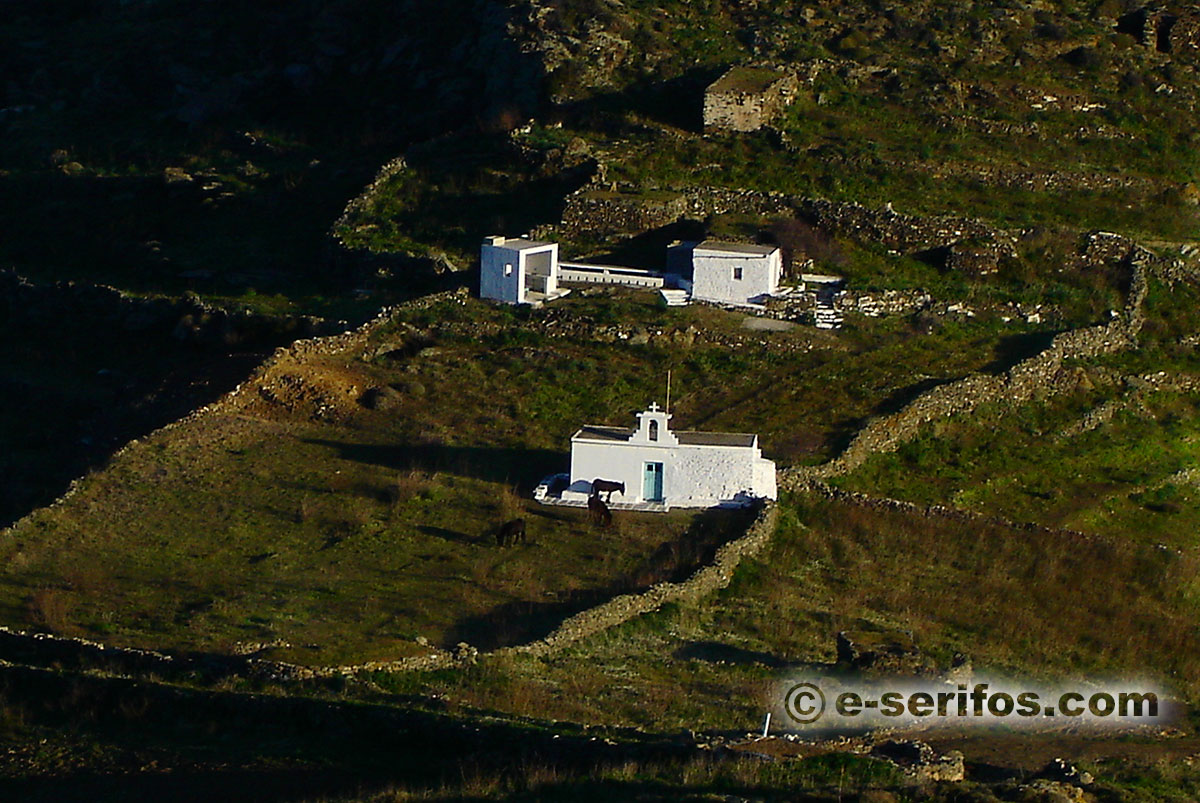
Liomadra (north Serifos)
Panagia of Liomandra. The church is situated on the northern side of the island in the small settlement Liomandra. You will have to ask for the keys at the first house of the settlement. The church has a large courtyard in order to welcome all the people who attend the 4! festivals that are organized there every year. Its interior is also interesting because it is built with huge slabs and joists.
Gallery
